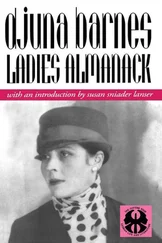In his search for the particular Comédie humaine Felix had come upon the odd. Conversant with edicts and laws, folk story and heresy, taster of rare wines, thumber of rarer books and old wives’ tales—tales of men who became holy and of beasts that became damned—read in all plans for fortifications and bridges, given pause by all graveyards on all roads, a pedant of many churches and castles, his mind dimly and reverently reverberated to Madame de Sévigné, Goethe, Loyola and Brantôme. But Loyola sounded the deepest note, he was alone, apart and single. A race that has fled its generations from city to city has not found the necessary time for the accumulation of that toughness which produces ribaldry, nor, after the crucifixion of its ideas, enough forgetfulness in twenty centuries to create legend. It takes a Christian, standing eternally in the Jew’s salvation, to blame himself and to bring up from that depth charming and fantastic superstitions through which the slowly and tirelessly milling Jew once more becomes the ‘collector’ of his own past. His undoing is never profitable until some goy has put it back into such shape that it can again be offered as a ‘sign’. A Jew’s undoing is never his own, it is God’s; his rehabilitation is never his own, it is a Christian’s. The Christian traffic in retribution has made the Jew’s history a commodity; it is the medium through which he receives, at the necessary moment, the serum of his own past that he may offer it again as his blood. In this manner the Jew participates in the two conditions; and in like manner Felix took the breast of this wet nurse whose milk was his being but which could never be his birthright.
Early in life Felix had insinuated himself into the pageantry of the circus and the theatre. In some way they linked his emotions to the higher and unattainable pageantry of kings and queens. The more amiable actresses of Prague, Vienna, Hungary, Germany, France and Italy, the acrobats and sword-swallowers, had at one time or another allowed him their dressing rooms—sham salons in which he aped his heart. Here he had neither to be capable nor alien. He became for a little while a part of their splendid and reeking falsification.
The people of this world, with desires utterly divergent from his own, had also seized on titles for a purpose. There was a Princess Nadja, a Baron von Tink, a Principessa Stasera y Stasero, a King Buffo and a Duchess of Broadback: gaudy, cheap cuts from the beast life, immensely capable of that great disquiet called entertainment. They took titles merely to dazzle boys about town, to make their public life (and it was all they had) mysterious and perplexing, knowing well that skill is never so amazing as when it seems inappropriate. Felix clung to his title to dazzle his own estrangement. It brought them together.
Going among these people, the men smelling weaker and the women stronger than their beasts, Felix had that sense of peace that formerly he had experienced only in museums. He moved with a humble hysteria among the decaying brocades and laces of the Carnavalet; he loved that old and documented splendour with something of the love of the lion for its tamer—that sweat-tarnished spangled enigma that, in bringing the beast to heel, had somehow turned toward him a face like his own, but which though curious and weak, had yet picked the precise fury from his brain.
Nadja had sat back to Felix, as certain of the justice of his eye as she would have been of the linear justice of a Rops, knowing that Felix tabulated precisely the tense capability of her spine with its lashing curve swinging into the hard compact cleft of her rump, as angrily and as beautifully as the more obvious tail of her lion.
The emotional spiral of the circus, taking its flight from the immense disqualification of the public, rebounding from its illimitable hope, produced in Felix longing and disquiet. The circus was a loved thing that he could never touch, therefore never know. The people of the theatre and the ring were for him as dramatic and as monstrous as a consignment on which he could never bid. That he haunted them as persistently as he did, was evidence of something in his nature that was turning Christian.
He was, in like manner, amazed to find himself drawn to the church, though this tension he could handle with greater ease; its arena he found was circumscribed to the individual heart.
It was to the Duchess of Broadback (Frau Mann) that Felix owed his first audience with a ‘gentleman of quality’. Frau Mann, then in Berlin, explained that this person had been ‘somewhat mixed up with her in the past’. It was with the utmost difficulty that he could imagine her ‘mixed up’ with anyone, her coquetries were muscular and localized. Her trade—the trapeze—seemed to have preserved her. It gave her, in a way, a certain charm. Her legs had the specialized tension common to aerial workers; something of the bar was in her wrists, the tan bark in her walk, as if the air, by its very lightness, by its very non-resistance, were an almost insurmountable problem, making her body, though slight and compact, seem much heavier than that of women who stay upon the ground. In her face was the tense expression of an organism surviving in an alien element. She seemed to have a skin that was the pattern of her costume: a bodice of lozenges, red and yellow, low in the back and ruffled over and under the arms, faded with the reek of her three-a-day control, red tights, laced boots—one somehow felt they ran through her as the design runs through hard holiday candies, and the bulge in the groin where she took the bar, one foot caught in the flex of the calf, was as solid, specialized and as polished as oak. The stuff of the tights was no longer a covering, it was herself; the span of the tightly-stitched crotch was so much her own flesh that she was as unsexed as a doll. The needle that had made one the property of the child made the other the property of no man.
‘Tonight,’ Frau Mann said turning to Felix, ‘we are going to be amused. Berlin is sometimes very nice at night, nicht wahr ? And the Count is something that must be seen. The place is very handsome, red and blue, he’s fond of blue, God knows why, and he is fond of impossible people, so we are invited—‘ The Baron moved his foot in. ‘He might even have the statues on.’
‘Statues?’ said Felix.
‘The living statues,’ she said, ‘he simply adores them.’ Felix dropped his hat; it rolled and stopped.
‘Is he German?’ he said.
‘Oh no, Italian, but it does not matter, he speaks anything, I think he comes to Germany to change money—he comes, he goes away, and everything goes on the same, except that people have something to talk about.’
‘What did you say his name was?’
‘I didn’t, but he calls himself Count Onatorio Altamonte, I’m sure it’s quite ridiculous, he says he is related to every nation—that should please you. We will have dinner, we will have champagne.’ The way she said ‘dinner’ and the way she said ‘champagne’ gave meat and liquid their exact difference, as if by having surmounted two mediums, earth and air, her talent, running forward, achieved all others.
‘Does one enjoy herself?’ he asked.
‘Oh, absolutely.’
She leaned forward, she began removing the paint with the hurried technical felicity of an artist cleaning a palette. She looked at the Baron derisively. ‘Wir setzen an dieser Stelle über den Fluss —‘ she said.
Standing about a table at the end of the immense room, looking as if they were deciding the fate of a nation, were grouped ten men, all in parliamentary attitudes, and one young woman. They were listening, at the moment of the entrance of Felix and the Duchess of Broadback, to a middle-aged ‘medical student’ with shaggy eyebrows, terrific widow’s peak, over-large dark eyes, and a heavy way of standing that was also apologetic. The man was Dr. Matthew O’Connor, an Irishman from the Barbary Coast (Pacific Street, San Francisco), whose interest in gynaecology had driven him half around the world. He was taking the part of host, the Count not yet having made his appearance, and was telling of himself, for he considered himself the most amusing predicament.
Читать дальше












